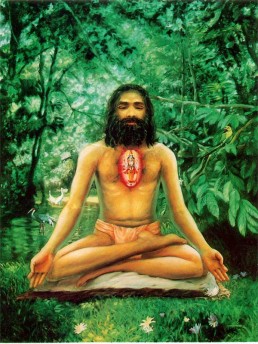Commentary
An uncontrolled mind cannot progress in spiritual path unless it discovers the Self. The discovery of the Self is possible by self-control achieved through the withdrawal of sense organs from their respective objects. Yoga can be attained by striving hard to utilize the conserved energies for the Divine purposes.
Yoga is the science of religion. The test of its validity lies in one’s seeing results through actual experimentation. Hence the teachers of yoga emphasize self-control and other disciplines.
Swami Chinmayananda Commentary
The commentary on this verse and the rest, is avaialble for free as:
Kindle eBook
Google Play Book
Apple Books
Adi Sankara Commentary
Me, My; matih, conviction; is iti, that; Yoga is dusprapah, difficult to be attained; asamyata-atmana, by one of uncontrolled mind, by one who has not controlled his mind, the internal organ, by practice and detachment. Tu, but, on the other hand; sakyah, Yoga is possible; avaptum, to be attained; yatata, by one who strives, who repeatedly makes effort; upayatah, through the means described above; and vasyatmany, by one of controlled mind, by him whose mind has been brought under control through practice and detachment. As to that, by accepting the practice of Yoga, actions leading to the attainment of this or the next world may be renounced by a yogi, and yet he may not attain the result of perfection in Yoga, i. e. full Illumination, which is the means to Liberation. Consequently, at the time of death his mind may waver from the path of Yoga. Apprehending that he may be thereby ruined.
The Bhagavad Gita with the commentary of Sri Sankaracharya – Translated by Alladi Mahadeva Sastry
Holy Geeta – Commentary by Swami Chinmayananda
The Bhagavad Gita by Eknath Easwaran – Best selling translation of the Bhagavad Gita
The Bhagavad Gita – Translation and Commentary by Swami Sivananda
Bhagavad Gita – Translation and Commentary by Bhaktivedanta Swami Prabupadha
Srimad Bhagavad Gita Chapter 6 – Verse 36 – 6.36 asamyatatmana yogo – All Bhagavad Gita (Geeta) Verses in Sanskrit, English, Transliteration, Word Meaning, Translation, Audio, Shankara Bhashya, Adi Sankaracharya Commentary and Links to Videos by Swami Chinmayananda and others – 6-36

